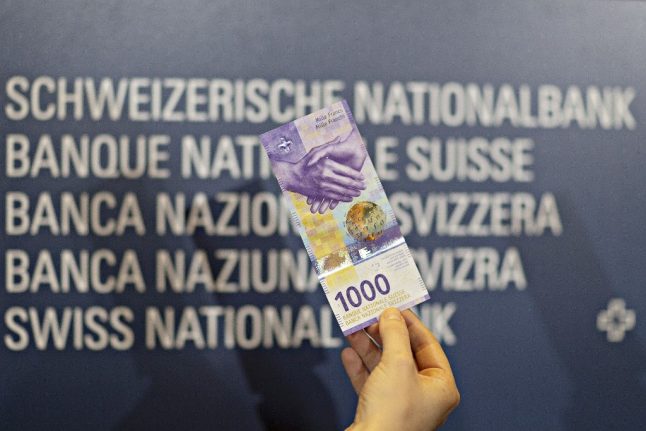The Swiss National Bank stressed on Thursday it would prevent the Swiss franc from gaining too much in value against the euro, saying it was ready to act “with the utmost determination.”
The SNP maintained its target range for the franc’s three-month London interbank offered rate (Libor) unchanged at 0-0.25 percent, it said as policymakers sought to keep the franc from soaring against major counterparts.
A central bank statement said it was prepared to “buy unlimited amounts of currencies” to keep Switzerland’s money at a minimum of 1.20 francs to the euro.
Investors unsettled by the eurozone debt crisis and uncertain US economic prospects have flocked to a perceived safe haven in Switzerland, driving up the value of the franc to the detriment of Swiss exporters.
The Swiss currency gained 11 percent against the euro and 15 percent against the dollar between January and September 5, 2011, forcing the central bank to intervene on foreign exchange markets to stem its rise.
Meanwhile, the statement noted: “In Switzerland, there is no risk of inflation in the foreseeable future.
“The inflation forecast has even been revised lower since the last examination in December,” it said.
“The strength of the franc continues to present a challenge to the economy” however, even though the bank’s declared floor of 1.20 francs to the euro has held up so far, it added.
Switzerland’s economic situation has stabilized and the central bank expects the economy to grow by almost 1.0 percent this year.



 Please whitelist us to continue reading.
Please whitelist us to continue reading.
Member comments